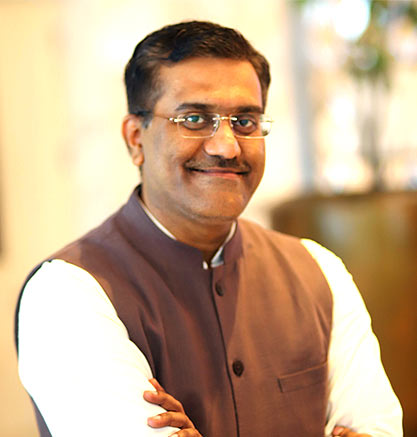-
CENTRES
Progammes & Centres
Location
India now has the opportunity to spearhead a global partnership to build a safe cyberspace and to prioritise cybersecurity concerns

On 1 December 2022, India assumed the presidency of G20, the grouping which brings together 20 of the world’s largest economies. With the sluggish post-pandemic economic recovery and increased geopolitical tensions, courtesy of the Russia-Ukraine conflict, G20’s priorities have evolved in the last two years. However, for India, themes like digital public infrastructure, climate change and sustainability, supply chain resilience and reformed multilateralism will dominate the agenda. With this presidency, India can drive initiatives in critical areas as the world settles into the second decade of the 21st century.
Enhanced cybersecurity cooperation at the G20 forum can contribute to ensuring the security and integrity of critical infrastructure and digital public platforms. Therefore, cybersecurity must be a key focus area in the digital agenda under India’s presidency in 2023.
One such critical area that has remained highly volatile and needs sustained focus at the level of G20 is cybersecurity. The need for a secure cyberspace is vital as there has been an exponential surge in the number and type of cyber threats, particularly to critical infrastructure. The latest example being the continuing disruption at New Delhi’s All India Institute of Medical Sciences caused by a ransomware attack. According to the 2022 Microsoft Digital Defense Report, nation-state actors are launching increasingly sophisticated cyberattacks to target critical infrastructure, particularly the Information Technology sector, financial services, transportation systems, and communications infrastructure. However, the potential cascading impact of such threats goes beyond these critical infrastructure sectors and disrupts digital public platforms—infrastructure that enables the delivery of government services. Therefore, cyber-secured critical infrastructure and digital public platforms are vital for national security, better governance, and, more importantly, retaining citizens’ confidence.
The need for a secure cyberspace is vital as there has been an exponential surge in the number and type of cyber threats, particularly to critical infrastructure.
Enhanced cybersecurity cooperation at the G20 forum can contribute to ensuring the security and integrity of critical infrastructure and digital public platforms. Therefore, cybersecurity must be a key focus area in the digital agenda under India’s presidency in 2023.
At the 2015 G20 Antalya Summit, the world leaders recognised that we live in an internet economy age that brings both opportunities and challenges. In 2016, during the Chinese Presidency, a G20 Digital Economy Task Force was established to shape a common understanding on addressing digital technology-related issues but excluded cybersecurity from its purview. In 2020, the Saudi Presidency bridged the digital economy and cybersecurity gap by convening the G20 Cybersecurity dialogue (as part of the Digital Economy Task Force) and focusing on the cyber resilience of the MSMEs (micro, small, and medium-sized enterprises) in the Digital Economy Ministers’ meeting, where India had highlighted the significance of making digital platforms trustworthy, safe, and secure.
This focus on cybersecurity persisted under the Italian and Indonesian presidencies in 2021 and 2022, respectively, by underlining the criticality of cyberspace under the Digital Economy Working Group discussions. Specifically, under the Indonesian Presidency, the salient cybersecurity focus was evident in the recent Bali Leaders’ Declaration, which among other things, highlighted:
This demonstrates the G20’s recognition that the credibility of the digital economy hinges on the security and uninterrupted functioning of critical infrastructure and digital public platforms. To better defend these systems, India can take forward the G20’s work on cybersecurity by working with the rest of the members to adopt guiding principles and evolve practical ways.
Specifically, India’s agenda must include the following:
To sum up, cybersecurity has become an essential aspect of international affairs that requires adequate focus due to its economic and geopolitical implications. It is time that cybersecurity gets a more prominent feature in the core initiatives of the G20, particularly when efforts to create a rules-based order in cyberspace have had limited success. As the G20 President in 2023, India can ensure that the field gets its due on the global stage.
The views expressed above belong to the author(s). ORF research and analyses now available on Telegram! Click here to access our curated content — blogs, longforms and interviews.

Dr Sameer Patil is Director, Centre for Security, Strategy and Technology at the Observer Research Foundation. His work focuses on the intersection of technology and national ...
Read More +
Arjun Gargeyasis an IIC-UChicago Fellow and was previously a researcher with the High-Tech Geopolitics Programme at the Takshashila Institution.
Read More +